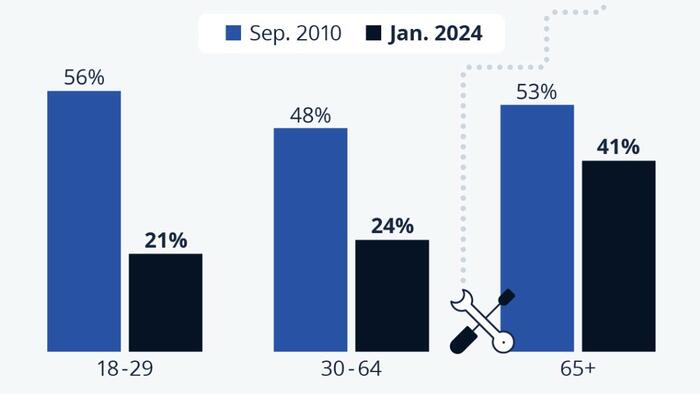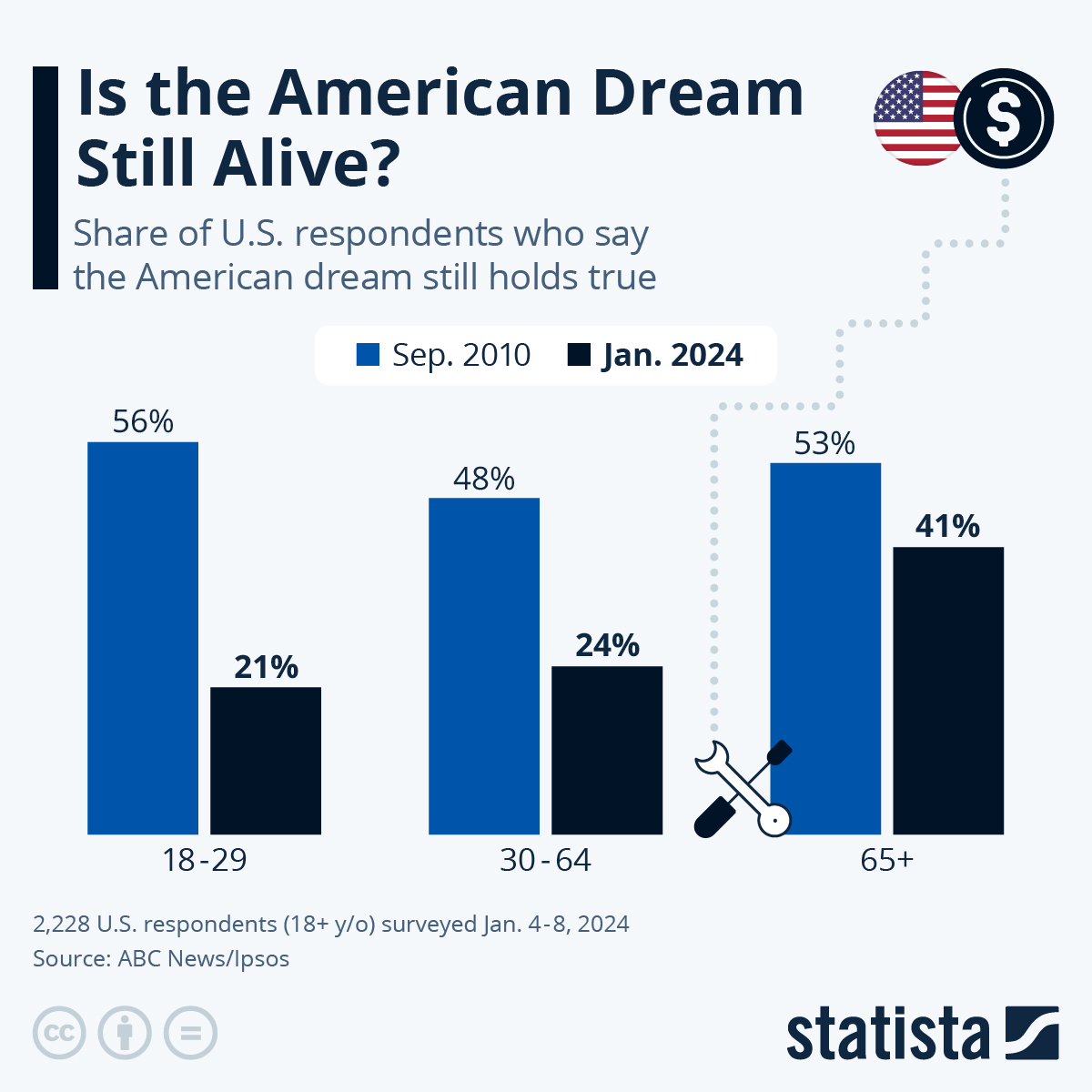


U.S. adults are losing faith in the American Dream.
At least, that’s what a poll by ABC News and Ipsos says, conducted in early January 2024. Where an average of 50 percent of U.S. adults aged 18 and up said they believe the American dream still holds true in 2010, that figure had nearly halved to just 27 percent by last year. Meanwhile, 18 percent of respondents in 2024 said it never held true, up from just four percent in 2010.
As Statista's Anna Fleck shows in the chart below, young adults have seen the biggest drop in belief (-35 p.p.).
Where 18 to 29 year olds had been the most hopeful about the idea that anyone can make it in America if they work hard enough, now the group has the highest share of nonbelievers, or at least skeptics. The age bracket of 30 to 64 year olds have become similarly disenchanted, while adults aged 65 and older were more likely to still believe the American dream holds true at 41 percent. According to the poll, around one in two U.S. adults today (52 percent) think that the American dream is a heyday of the past - that it once held true but no longer does.
You will find more infographics at Statista
Views also varied between ethnic and racial groups as well as those with different levels of income. Black adults and those earning under $50,000 per year were more likely to say the American dream never held true, reflecting persistent systemic inequalities.
In 2017, Statista conducted a survey asking U.S. adults about the concepts they considered essential to the American dream.
The five most common answers were personal freedom (selected by 66 percent of respondents), religious freedom (56 percent), equality (55 percent), security (54 percent) and the pursuit of happiness (53 percent).

